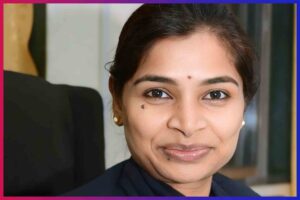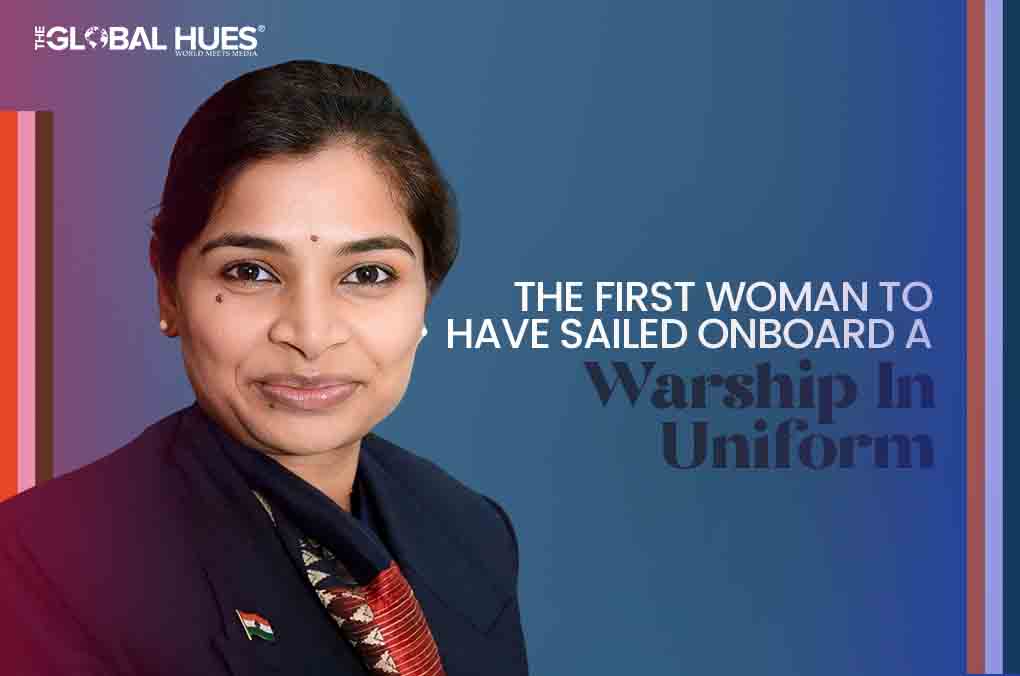In this world of inspiration, the journey of Cdr Rajeshwari Kori starts with the strong influence of her late father who was a Naval Police Officer. A chance meeting with the Late Vice Admiral Manohar Awati sparked her ambition to don the uniform for the country. Listening to him talk about life in the armed forces, both in peace and war, fueled her determination. For Rajeshwari, if it was good for her father, it was good for her too. Inspiration from the family, love for the country, and her strong determination to walk the same path as those who came before her made her join the Indian Navy in 1995.
She is currently serving as the Commandant of The Civil Defence Staff College under the Government of Maharashtra and empowering the citizens and younger generation. She is serving under Home Department Special 8, which deals with Home Guards and Civil Defense Corps. These organisations are voluntary-based, emergency management forces, supported by the government to protect citizens from any kind of military attack or natural and human-made disasters.
She has been awarded the President’s Meritorious Service Medal on 26th Jan 2024. The Global Hues connected with Rajeshwari Kori, the first woman to have sailed onboard a warship in uniform. Let’s learn more about her journey from Rajeshwari herself.
As the Commandant of the Civil Defence Staff College, what are your responsibilities?
The Civil Defence Staff College is a state-level training institute where students, who have completed local courses, undertake approved training courses from the Ministry of Home Affairs in New Delhi. These courses, aligned with ministry guidelines, cover various aspects of emergency management. Students, deemed worthy by the controller, receive advanced training at our residential college, bringing together individuals from diverse backgrounds.
Courses typically last three to five days, depending on specific guidelines. For instance, a fire and flood rescue course spans five days. We teach citizen volunteers how to assist during emergencies in short module courses, and they receive certificates from the Government of Maharashtra. These certificates not only add value to their resumes but also aid in applications for higher studies, both in India and abroad. It highlights their training in activities crucial for national defence and security.
Are these training provided at school and college levels?
Disaster management education is integrated into school curriculums, with classes until the 10th grade. With the help of UNDP, the Education Department, the Maharashtra State Disaster Management Authority, and the Civil Defence Staff College (CDSC), training has been extended to government schools across thirty-four districts. Principals, teachers, and non-teaching staff actively participate in conducting mock drills for various scenarios.
In my role, I oversee the training of all Civil Defence districts where schools, colleges, industries, factories, and corporates call us to train their senior management, senior executives and housekeeping staff in disaster management. Sometimes, they approach me, or I approach them based on their availability through mutual convenience. Civil Defence Corps is all over India, especially in Delhi, Rajasthan, Karnataka, Manipur and Nagaland.
In 2012, I, along with CD officers from different States, was selected to attend the Technical Relief School’s Civil Defence Master Training in Stuttgart, Germany. Here too, I was the only lady officer in a group of 9 to undergo Civil Defence Master Training in Germany. We underwent training in peak winter conditions in December, with temperatures below freezing. In such a situation, we were doing a flood rescue course in river Neckar at Stuttgart. We shared with them our ideas and approaches that we use to save people.
It has been 30 years since you joined the Indian Navy. Based on your experience, do you see a change in the representation of Women in the Navy? How has their contribution evolved over the years?
I believe every generation has contributed to the development. No particular person or gender makes the organisation. Everybody brings something to the table. I was in awe with the first batch lady officers, and I would often go and ask them questions– Why did you join the Navy? How was the exam? What kind of questions were there in the exam? What answers did you give? Since I joined the Navy till now, there have been equal measures of upheaval and acceptance. People have accepted that women officers are here to stay. They now also have women serving as women sailors.

Though acceptance has grown over time, I am from the 4th batch of Women’ special entry Naval officer and at that time, trust and acceptance were less. To earn that, I had to go out of the way and create trust among the men. I was their Logistics Officer. I had to prove to them that I could do better. At times, I had to wake up at nights to make payments to the officers as they had to go on a mission at night.
There were times when there was no cash. We had to go to the RBI with Armed Escorts to get four to ten crores, and then my team had to count them before giving it to the Officers and men. We used to cater to approximately 6000 officers and men and that’s a huge number to keep the accounting records. Those days even the salaries were given by hand. A few years later, we wrote the account numbers on the floppy disks and sent them to the bank so that they would transfer the money. We had to crosscheck whether everyone had got their salaries.
Today, the ease of transferring money with a click of a button is a stark contrast. In those days, I had to be both proactive and approachable to gain acceptance in my role.
How has this experience shaped your perspective on life?
I always seek to learn new things and improve myself. I recently received the President’s Meritorious Service Medal on 26th January 2024. Frankly, I didn’t expect to win it so soon, so it was a big achievement for me. It is all because of the patience and determination I gained from my training in the armed forces. This is just an offshoot.
The present organisation is also an offshoot of the National Defense Strategy. My role involves training citizens to be ready during times of war emergencies or armed conflicts. I train them to help the armed forces and civil administration, as to how to recognise a live bomb. Often, when citizens come across a bomb, they feel scared and don’t know what to do. A delay in informing someone can be dangerous, as the bomb might explode. In one instance in Tarapur, Palghar, a farmer discovered an unexploded bomb, and there are similar unexploded bombs still present of the World War era. Our organization educates citizens on how to handle such situations and stay safe.
We also reach out to the Gram Panchayat level where villagers are eager to learn and want to contribute to national defence and showcase their patriotism. Even though they get paid a small amount to be volunteers, as a token of gratitude by the government, the thought of serving the country is a high for them. People take time off from their jobs, become volunteers and participate in the parade to learn discipline. I try to ignite that spark and take the best out of them.
Be a citizen worth fighting for.
Read More Stories:
- Alaknanda Das: The Kathak Genius Who Danced Through Cancer
- Deepa Malik: A Woman With Limitless Spirits
- Aruna Desai: Embracing Motherhood Like No Other
- Ekta Viiveck Verma: The Catalyst For Change In Gender-Based Violence
- Deepika Mhatre: The House-Maid Turned Comedian




